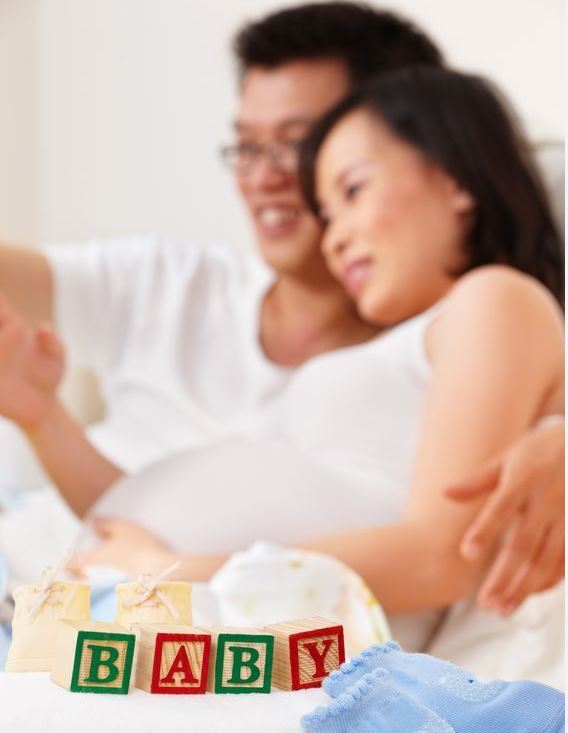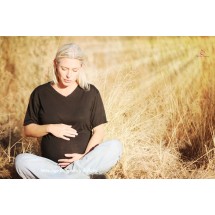 They say that men age like wine – which improves over the years – but women age like milk -which goes bad rather quickly. Do you agree? Whatever you think about the men, the sad but honest truth is that a woman’s biological clock does seem to tick a little faster than the men, for example in the fertility department.
They say that men age like wine – which improves over the years – but women age like milk -which goes bad rather quickly. Do you agree? Whatever you think about the men, the sad but honest truth is that a woman’s biological clock does seem to tick a little faster than the men, for example in the fertility department.
Female fertility begins to decline significantly after 35, as the number and quality of eggs in the ovaries start to fall. The lining of the womb may also become thinner, making it less likely for a fertilised egg to attach itself, and also creating an environment hostile to sperm. For these reasons, it’s definitely harder to get pregnant the older you get.
Still, that doesn’t mean you can’t conceive once you hit 40. In fact, more and more women are able to conceive later on in life nowadays, with advances in medical science and assistive reproductive technology (ART). That said, the pregnancy experience may look somewhat different for you in your twenties, thirties and forties. Read on to find out more…
In your Twenties…
From a physical perspective, this is the ideal time to get pregnant and become a mum. Your body is in the prime of life, and able to handle the demands of carrying and caring for a baby. You are also at the lowest risk for pregnancy complications like gestational diabetes, chronic hypertension and preeclampsia. Statistically, you’re also less likely to have a child with Down Syndrome or spina bifida. (At 25, your risk of having a baby with Down Syndrome is one in 1,250. At 35, it’s one in 378.)
However, like most young couples, you are still figuring out this whole marriage thing out. A new baby can put stress on a young marriage. It will be important to carve out couple-time for yourselves by leaving your baby with relatives or a sitter occasionally. You will also need to discuss how to juggle work and family responsibilities. Many mums opt to extend their time at home by taking up to a year of unpaid leave, before returning to work.
Many of your friends are still swinging singles or childless couples. Your social circle may not be too eager to welcome the new arrival, and understandably, because parenthood is a whole lifestyle shift for you. You would most probably have to say goodbye – at least temporarily – to your late nights of clubbing or partying, or spontaneous holidays with friends.
It will be important for you to connect with other new mums or mums-to-be, to get the emotional support and advice you need. If no one in your circle of friends fits the bill, join an online community, for example via a parenting or motherhood forum.
In your Thirties…
There’s definitely more physical risk of pregnancy complications at this stage, but the majority of otherwise healthy women in their thirties still have smooth pregnancies at this stage. Interestingly, you are more likely than a younger woman to conceive multiples, especially if you used fertility treatments to get pregnant.
Mentally and emotionally, many women in their thirties feel more ready to become a mother. Psychologically, you’re more mature, more anchored, more secure. Your marriage has now had at least a couple of years or so to stabilize, and you’ve got a routine of sorts going. You’re also more likely to know other expectant or new mums, and even experienced ones, which can provide you much needed support and encouragement as you embark on the journey of parenthood.
In your Forties…
These days, having a baby in your forties is pretty common, and many women still experience normal pregnancies. However the risk of complications does rise after age 40. For example, if you are expecting multiples, there’s an increased risk or delivering preterm or low birth weight babies. Other complications like gestational diabetes, high blood pressure and preeclampsia are also much more common at this age. There is also an increased risk of chromosomal abnormalities in your baby, such as Down Syndrome.
Looking after a baby is, more often than not, simply exhausting. You will likely feel the physical stresses and strain more than a younger woman would, so be sure to look after yourself well and get the help that you need. If you are physically fit and don’t have preexisting health conditions like diabetes or hypertension, you still have a very good chance of a smooth pregnancy, not unlike a younger woman.
At forty and beyond, you’ve gained invaluable experience and self-confidence, and these perspectives will stand you in good stead when grappling with the difficulties of managing a newborn. Many of your peers will probably have become parents a few years ago. On the positive side, this means you have lots of sources to turn to for advice, the benefit of experience, and to get hand-me-downs from. On the flip-side, their kids will all be a fair bit older than yours. Take that as an incentive for you to get to know some younger mums and their kids.
* * *
No matter what age you are when you conceive, there’s really no ‘right’ time to become a mum. Every age brings with it a different set of benefits and challenges, and you will rise to the occasion, somehow. Every life that is born is precious.
By Dorothea Chow





